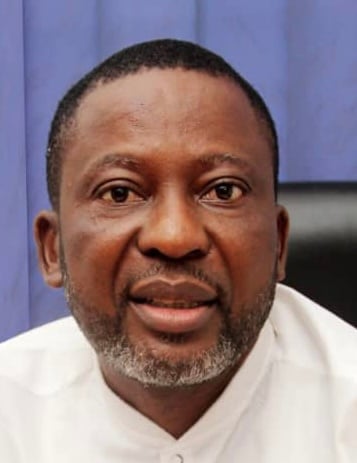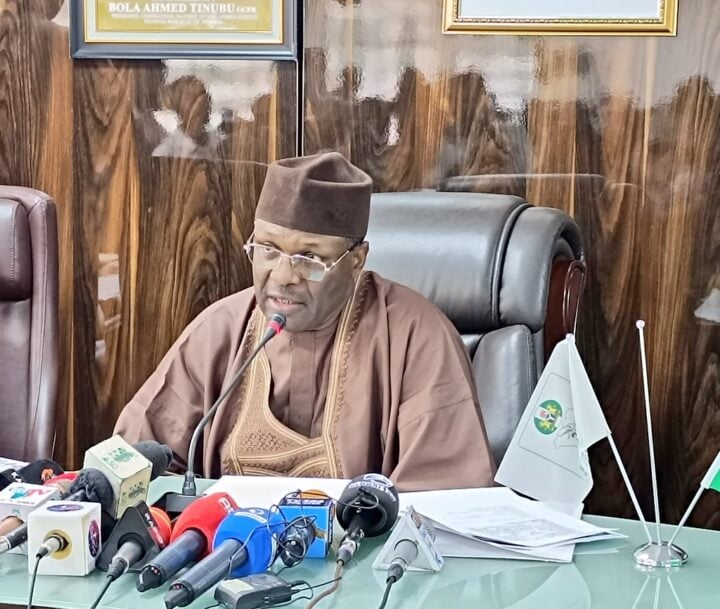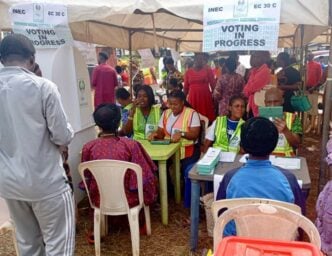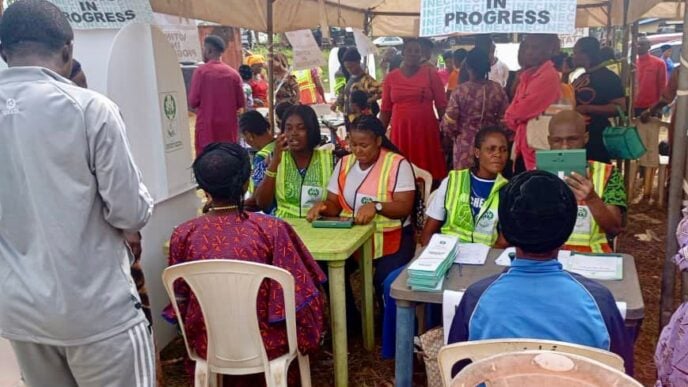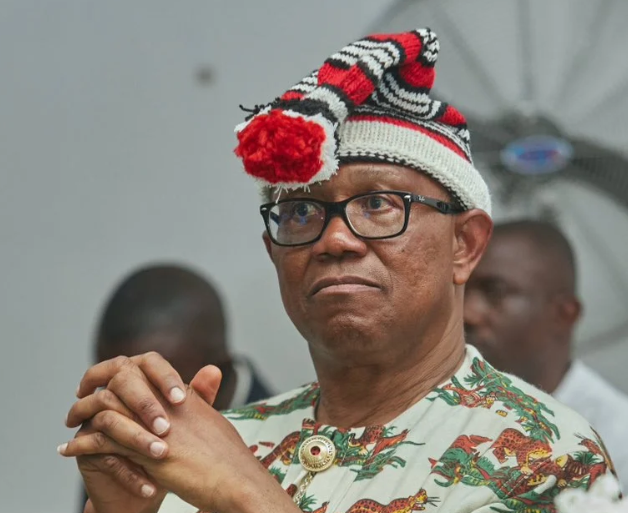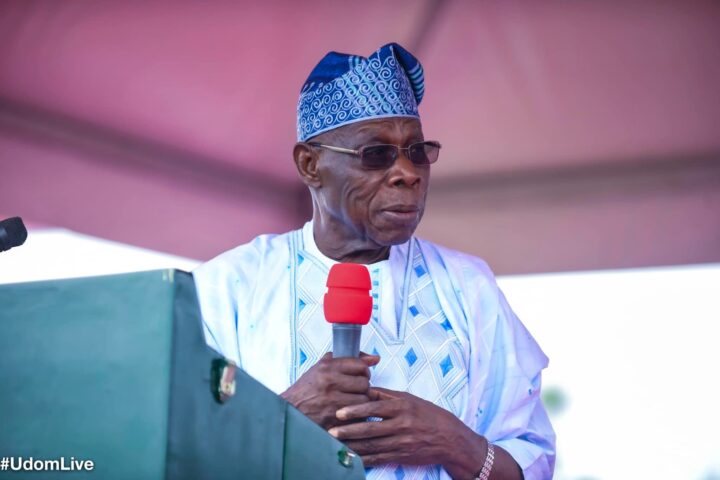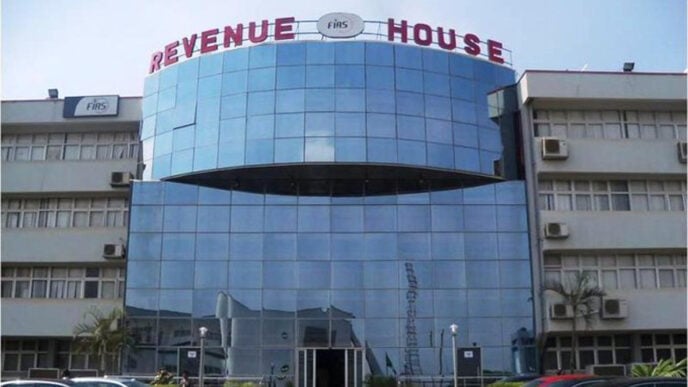Mahmood Yakubu, INEC chairman
As the curtain falls on Professor Mahmood Yakubu’s decade long reign as the Chairman of the Independent National Electoral Commission (INEC), the question resonates across the nation: did he save our democracy or slowly strangled it under the weight of unfulfilled promises?
Prof. Yakubu, the chief electoral umpire, will step down in October 2025 after serving the maximum two terms of 10 years. He has overseen two general elections (2019 and 2023), making him the longest serving INEC chairman since Nigeria’s return to democracy in 1999.
The recently held by-elections across the country this August, 2025 marked the end of an era as Yakubu presided over his final off-season election, a subdued political skirmish that barely made headlines compared to the seismic shocks of February 2023.
It was his last act, a quiet bow after years of thunderous applause and deafening taunts. For 10 long years, he was the man in the middle, the referee in Nigeria’s high stake political game. Two presidential elections, countless governorship battles and oceans of controversy stirred.
Advertisement
Yakubu’s INEC tenure began in late 2015 under the Buhari administration, promising a digital revolution in Nigeria’s electoral process.
BVAS, the electronic accreditation device was introduced so was the IReV, which enabled transmission of already counted votes and recorded at the polling units to be transmitted and viewed real time, at a central portal by members of the public.
These were not just buzzwords; they were sold as game changers, a firewall against ballot box banditry. For a while, Nigerians believed. The 2019 general election was brutal but at the end people accepted the result as the sitting president, Dr. Goodluck Jonathan congratulated General Mohammed Buhari, the candidate of the APC.
Advertisement
Then came 2023, hailed as the year technology would cleanse the demons in our polls.
Nigerians trooped out in hope, only to watch their dream shatter on collation night like cheap glasses. The failure of real time results upload became the scar that refused to heal. “Glitches,” INEC called it. “Fraud,” cried the streets. Trust, the lifeblood of any democracy was drained away in hours.
When Professor Mahmood Yakubu walked into the glass towers of the Independent National Electoral Commission (INEC) headquarters in November 2015, Nigeria sighed with cautious optimism. He was stepping into shoes once worn by Professor Attahiru Jega, the man celebrated as a reformer, an activist-scholar who earned global respect for introducing the Permanent Voter Card (PVC) and the Smart Card Reader.
Yakubu came with an intimidating résumé: historian, technocrat, former executive secretary of TETFund, a scholar with degrees from Oxford and Cambridge. On paper, he was the perfect choice, a man of letters and learning, tested in policy and administration.
Advertisement
He inherited an INEC that was basking in the relative success of the 2015 elections, which saw a historic transfer of power from an incumbent president to the opposition.
Jega left behind a reputation for courage and innovation. He fought political pressure and introduced technology that, despite hiccups, restored a measure of faith in Nigeria’s elections.
Yakubu promised to build on that foundation, modernizing the system further with technology like the Bimodal Voter Accreditation System (BVAS) and the INEC Result Viewing (IReV) portal. Nigerians believed the 2023 general elections would be a turning point, a digital firewall against rigging and vote manipulation.
After raising the hope of many Nigerians for a better electoral process, the nation got a bitter pill. BVAS worked in many areas but collapsed in others. Real time result transmission, touted as the game changer, failed spectacularly during the presidential election. INEC blamed “technical glitches.” Critics screamed sabotage. That single moment when results stopped uploading erased years of trust building in a flash.
Advertisement
If general elections were messy, off-season polls under Yakubu were a carnival of corruption. From Anambra to Kogi, Bayelsa to Imo, a dark pattern emerged: logistics nightmares haunted every cycle like a bad spirit, Vote buying became the currency of power. Collusion between politicians and compromised INEC officials turned the electoral process into a bazaar. Security agencies often looked the other way as democracy was auctioned in broad daylight. For millions of Nigerians, INEC under Yakubu now stands for “Inconclusive Elections Commission”.
Even the last off season election, supposedly his sent forth gift was marred by confusion and violence in about 16 constituencies across 12 states in the country with security officers arresting officials of INEC, and 288 thugs in Ogun, Kano, and Kaduna states, as well as widespread allegations of vote buying.
Advertisement
Though Yakubu promised zero tolerance for malpractices, yet these irregularities thrived. Observers noted that even when perpetrators were caught, prosecutions were rare and convictions almost nonexistent as impunity reign supreme.
Under Jega, the 2011 and 2015 elections were far from perfect, but they carried a sense of integrity. Jega was visible, firm, and willing to defy political overlords when necessary. He delayed the 2015 polls to address security concerns, an unpopular but principled decision that preserved the election’s credibility.
Advertisement
On the contrary, Yakubu, was accused of bending under pressure. His insistence on sticking to timelines in 2023, even when logistics and technical readiness were in doubt, backfired. Where Jega was seen as an activist for democracy, Yakubu often looked like a bureaucrat guarding procedure while the house burned.
In other climes, electoral umpires such as Yakubu are seen as global reformers. For instance, in Ghana, Dr. Kwadwo Afari-Gyan became a continental symbol of electoral integrity by insisting on transparency and accountability, even under immense political pressure. In South Africa, the Independent Electoral Commission earned global admiration for its role in stabilizing democracy after apartheid.
Advertisement
Also in countries like India, the world’s largest democracy, election commissions deploy cutting edge technology and ruthless enforcement of electoral laws, ensuring near zero tolerance for malpractice. Contrast that with Nigeria, where technology was introduced but allowed to fail at the most critical hour.
Yet, to dismiss Yakubu as a villain would be unfair. He leaves behind undeniable gains as his INEC delivered some reforms including BVAS that curtailed multiple voting and some forms of rigging, The Electoral Act 2022 that provided a legal backbone for digital innovations and off season elections conducted without widespread violence compared to past cycles.
Yet, these gains are overshadowed by failures in credibility, logistics, and enforcement.
For many Nigerians, Yakubu’s tenure will be remembered not for what was achieved, but for what was lost: trust. Democracy runs on trust, and once broken, it bleeds legitimacy.
So, was Yakubu’s scorecard: progress or peril? Analysts are split down the middle. Optimists call him a reformer who fought a rotten system with limited weapons while pessimists brand him an accomplice, a smiling technocrat who gave legitimacy to the fraud he swore to dismantle.
The truth is, his legacy is a paradox. He dragged Nigeria’s elections into the digital age but failed to drag Nigerian politics out of the stone age. For every step forward, there was a stumble backward. For every promise of transparency, a shadow of doubt lingered.
As Yakubu prepares to bow out, the most pressing question is: who succeeds him? The next INEC chairman will preside over elections that will define Nigeria’s democratic future. The stakes are monumental.
President Bola Ahmed Tinubu now bears the constitutional and moral duty to nominate a credible, independent figure and someone with the spine of steel to resist the temptations and terrors of Nigerian politics.
The new umpire must not just be a technocrat; he must be a reformer, an activist for transparency, a relentless enemy of electoral fraud.
Again President Tinubu should borrow a leaf from former Nigerian presidents who have avoided appointing INEC chairpersons from their own regions to prevent accusations of bias.
For instance: President Olusegun Obasanjo (South West) appointed Abel Guobadia (South South) and Maurice Iwu (South East). President Goodluck Jonathan (South South) appointed Attahiru Jega (North West) and President Muhammadu Buhari (North West) appointed Mahmood Yakubu (North East).
Critics argue that Tinubu’s previous appointments have disproportionately favoured the South West, his region. However, former INEC commissioner Professor Lai Olurode argues it would not be unethical to appoint a qualified South Westerner, highlighting that the position should genuinely be open to candidates from all regions.
It should be noted however that the choice of Yakubu’s successor will significantly impact the credibility of the 2027 elections, particularly as Tinubu is expected to run for re-election.
If the choice is compromised, Nigeria’s democracy will continue to wobble and drift to precipice.
As he exits the stage, one thing is certain: Yakubu’s name will not vanish from Nigeria’s political history. It will live on, in textbooks, in court judgments, in late night beer parlor conversations and in the bitter jokes of those who once believed he was the umpire for a decade when Nigerian’s elections and electoral system drifted to near abyss.
As Nigeria braces for the next electoral umpire there is expectation that a defender of democracy will be appointed.
Professor Mahmood Yakubu entered history with lofty expectations. He leaves with a legacy riddled with contradictions, progress laced with peril, innovation undermined by impunity. His chapter is closed but the book of Nigeria’s democracy remains unfinished and its next author must be chosen with care.
Okoronkwo, a leadership and good governance advocate writes from Lagos and can be reached via [email protected]
Views expressed by contributors are strictly personal and not of TheCable.
